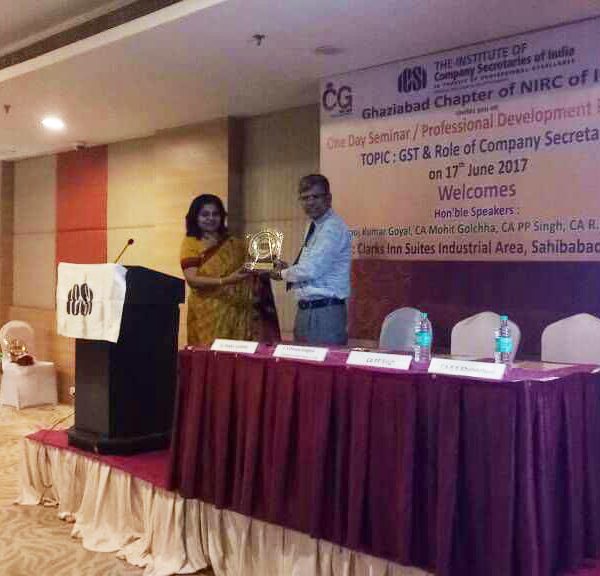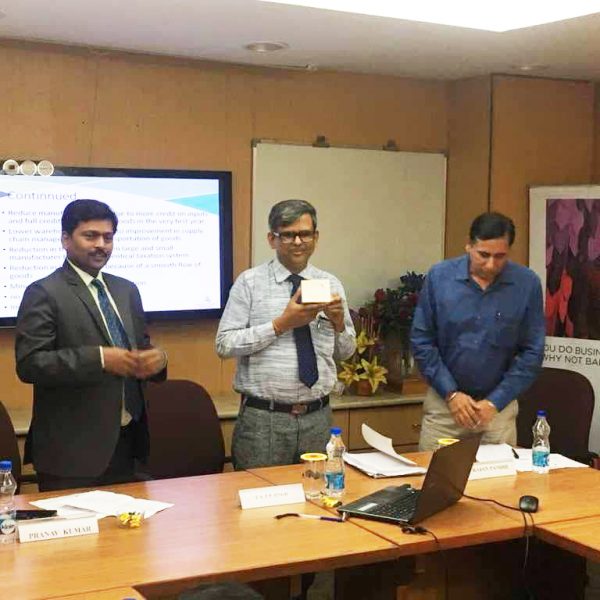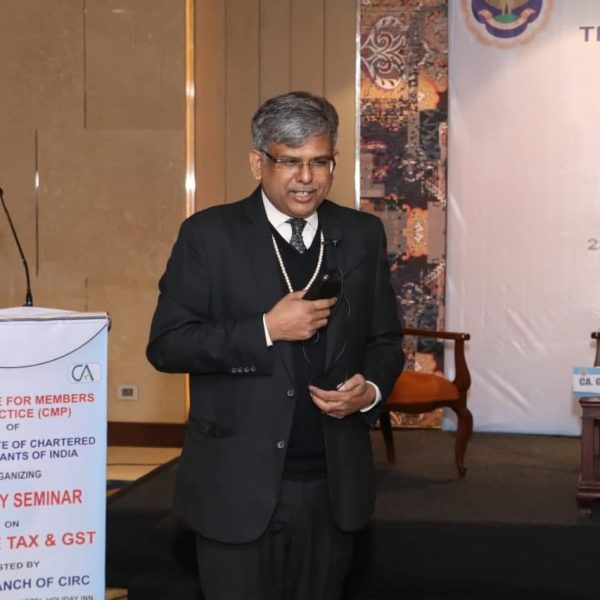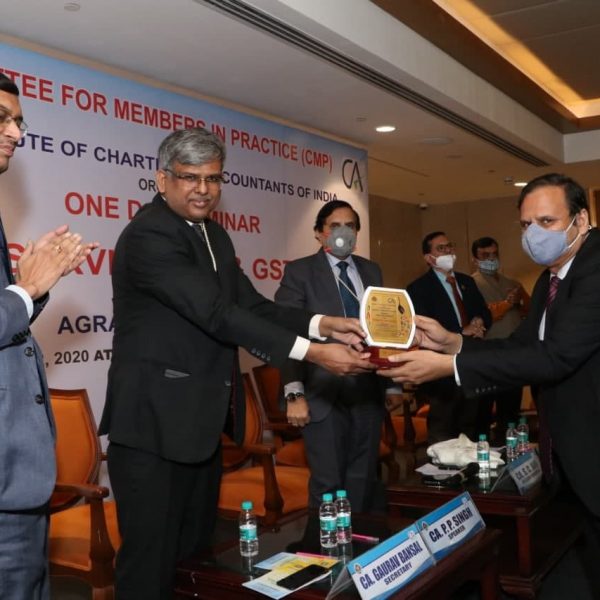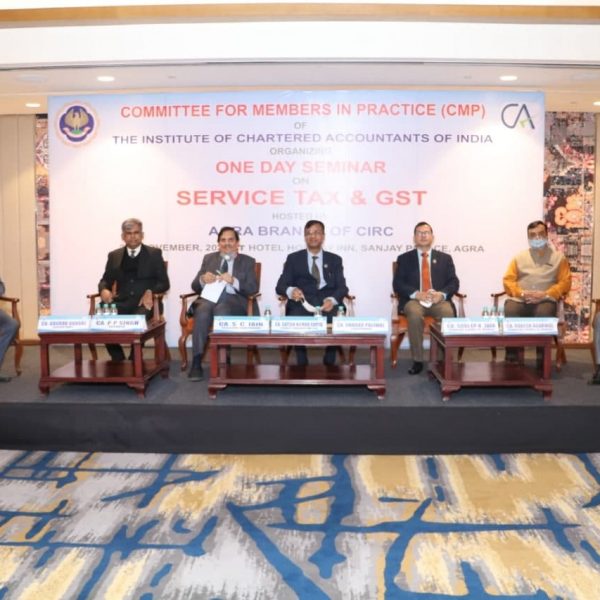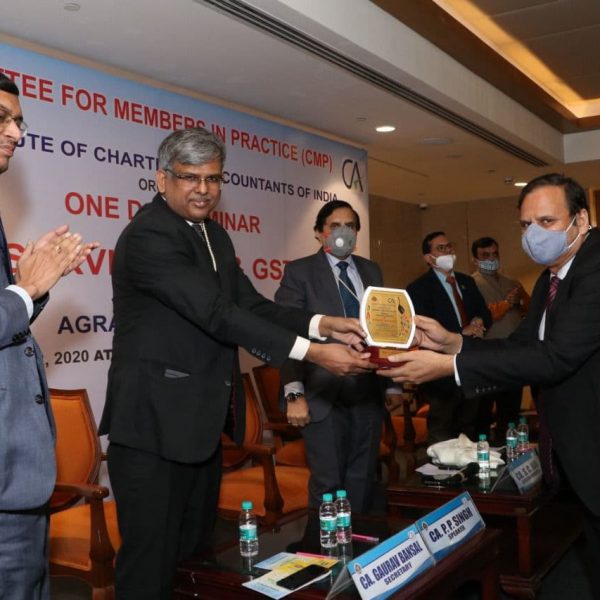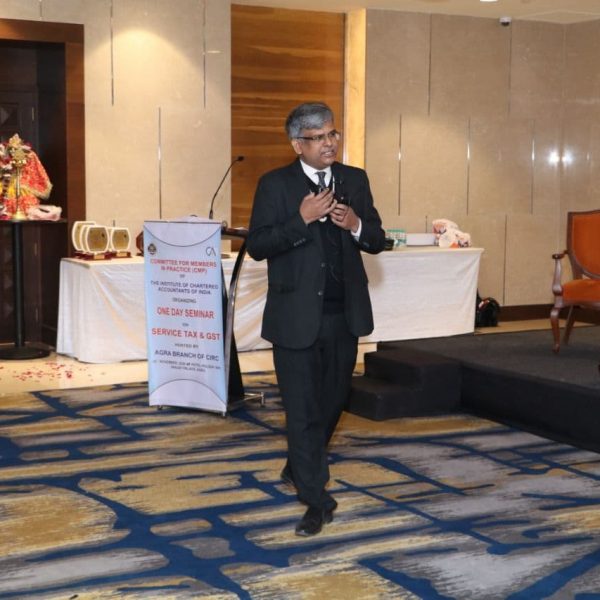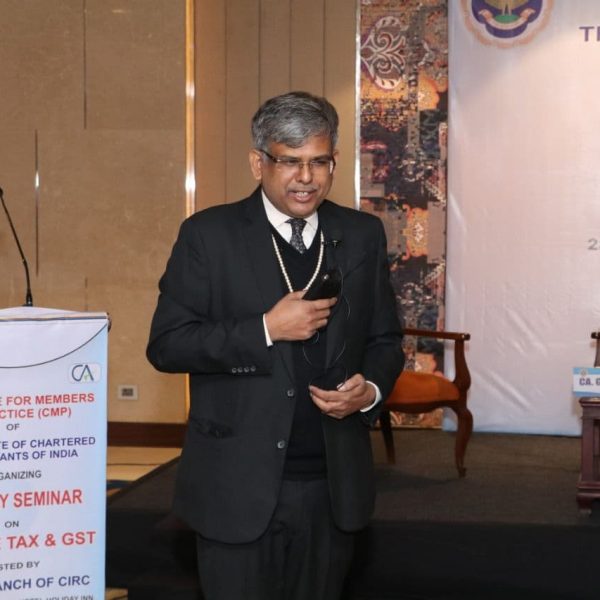- What are the principles of interpretation? Explain each principle in brief.
Introduction:
meaning of Interpretation: understanding the express provision of law Correctly. In other words, it is discovering the true meaning of words or expressions used in the Statute book. The process adopted by the Court for determining the exact intention of the legislature is to understand the law and Correctly apply the provisions of the law in a given situation. mischief may be in statute and the court has to draw interpretation to overcome the mischief and to understand the intention of the legislature correctly. In Shanti Swarup sarkar Vs. Pratap kumar sarkar hon’ble Supreme Court held that where two or more interpretations are possible of statute, the one which validate the Statute must get Preference over other interpretation makes provision of statute invalid.
According to Salmond “ Interpretation is the process by which the Court Seeks to ascertain the meaning of text used in the statute by legislature through the medium of authoritative form in which it is expressed.
Meaning of Construction: Process of drawing conclusions of the Subject which are beyond the direct expression of the text in the statute. The Court drew findings after analyzing the meaning of words used in the statute. This process is known as legal expositions. There are certain forms of facts pending before the Court and Construction is the application of the conclusion of these facts. The objective is to assist the Judicial body in determining the intention of the legislature and to ascertain legal effects of the legal text.
| interpretation | Construction |
| to understand the exact meaning of text used in the statute | conclusion beyond the text used in the statute |
| linguistic meaning of legal text | legal effects of the word used or written text of the Statute. |
| Simple, ordinary & Natural meaning of word adopted or sometimes meaning drawn from the other text used in statute for drawing interpretation . | If literal meaning fails to give desired result or Still ambiguity persists, Construction is used. |
Meaning of Statute: Maxwell’s ‘Interpretation of Statutes’ has defined statute as the “ will of the legislature”. Usually, it refers to the act that is enacted by the legislature. The term statute is generally applied to laws and regulations of every sort that ordain ( means command or order Something ), permits, or prohibits anything that is designated as a statute, without considering from what source it arises.
Types of Statute: The Constitution of India has no particular definition for the word statute but it uses the term “law” to denote the actions of legislature and its primary power. Statutes are divided into classes as mentioned below:
- Codification: It is one when they codify the unwritten law on a particular subject.
- Declaration: When there is no change in the existing law but merely clarification or explanation of what it is.
- Remedial: This is when they alter the common law or the judge makes a non-statutory law on a particular subject.
- Amendment: This is when the judge or the legislature changes or alters the statute law.
- Consolidation: This is combining several previous statutes relating to the same subject matter with or without making changes to the same.
- Enabling: Removal of restriction or disability.
- Disabling or Restraining: Restrain on the alienation of property.
- Penal: When there is imposition of penalty or forfeiture.
Need of interposition: According to Salmond “Interpretation or construction is the process by which the Court seeks to ascertain the meaning of the legislature through the medium of authoritative forms in which it is expressed.”
Lord Denning commented on the need for interpretation in Seasford Court Estates Ltd. v. Asher. He said that it is not within an ordinary man’s power to realize what new facts will arise from a case at hand. Considering the facts, all laws cannot be free from ambiguity when applied to them. There can be no legislature or judge that can make a perfect law written in perfect English for ordinary people to understand and not get criticized. Therefore, the interpretation of a law is very important as what one writes can be converted into various meanings and various judgments. A judge should ask himself the question: If the makers of the Act had themselves come across this luck in the texture of it, how would they have straightened it out? He must then do as they would have done. A judge must not alter the material of which it is woven, but he can and should iron out the creases.
The main and most important objective of interpretation is to see the intention that has been merely expressed by the words. The words of the statute are to be interpreted to ascertain the mind of the legislature from the natural and grammatical meaning of the words which it has used.
General Principles of Interpretation
When the intention of the legislature is not clearly expressed, a court needs to interpret the laws using the rules of interpretation. There are two types of Rules of Interpretation literal interpretation or logical interpretation with sub-categories:
- Primary Rules
- Literal Interpretation
- The Mischief Rule: Heydon’s Rule
- Rule of Reasonable Construction or Ut Res Magis Valeat Quam Pereat
- Rule of Harmonious Construction
- Rule of Ejusdem Generis
- Other Rules/ secondary rules
- Expressio Units Est Exclusio Alterius
- Contemporanea Expositio Est Optima Et Fortissima in Lege
- Noscitur a Sociis
- Strict and Liberal Construction
The Primary Rule:
-
Literal or grammatical rule of Interpretation
In construing Statutes, the cardinal rule is to construe its provisions literally and grammatically giving the words their ordinary and natural meaning. This rule is also known as the Plain meaning rule. The first and foremost step in the course of interpretation is to examine the language and the literal meaning of the statute. The words in an enactment have their own natural effect and the construction of an act depends on its wording. There should be no additions or substitutions of words in the construction of statutes and in its interpretation. The primary rule is to interpret words as they are. It should be taken into note that the rule can be applied only when the meanings of the words are clear i.e. words should be simple so that the language is plain and only one meaning can be derived from the statute.
To avoid ambiguity, legislatures often include “definitions” sections within a statute, which explicitly define the most important terms used in that statute. But some statutes omit a definitions section entirely, or (more commonly) fail to define a particular term. The plain meaning rule attempts to guide courts faced with litigation that turns on the meaning of a term not defined by the statute, or on that of a word found within a definition itself.
Proponents of the plain meaning rule claim that it prevents courts from taking sides in legislative or political issues. They also point out that ordinary people and lawyers do not have extensive access to secondary sources. In probate law this rule is also favoured because the testator is typically not around to indicate what interpretation of a will is appropriate. Therefore, it is argued that extrinsic evidence should not be allowed to vary the words used by the testator or their meaning. It can help to provide consistency in interpretation.
One criticism of the rule is that it rests on the erroneous assumption that words have a fixed meaning. In fact, words are imprecise and may have more than one meaning, leading justices to impose their own prejudices to determine the meaning of a statute. However, since little else is offered as an alternative discretion-confining theory, plain meaning survives.
Advantage of the Literal interpretation rule:
- common man to understand the Statute
- This rule supports the supremacy of parliamentary democracy
- the law becomes predictable for all.
- The intention of the Legislature is Simple and clear.
Disadvantage:
- such interpretation may lead to erroneous results, decision/ order
- such a rule may result in denial of Justice
- language has its own limitations and the Same word may have different meanings so language may lead to ambiguity
- It is not possible to apply this rule every time
- This rule expects perfection in drafting and perfection from the legislature while drafting and enacting law which is not always possible.
Case Law:
Ranman Jaya singh Vs Baijyanath Singh (1954) (SC)
The election tribunal has set aside the election of the appellant u/s 123(7) of the Representation of People Act 1951 on the ground that the appellant has employed more persons than prescribed for the election purpose. The appellant contended that those excess persons were employees of his Father and paid by the father and therefore not his employees. The Supreme Court followed the literal interpretation rule and said that the meaning of the word in Section 123 (7) is quite clear and therefore these persons were merely volunteer Campaigning for the appellant.
In Municipal Board v. State Transport Authority, Rajasthan (1965) (SC), the location of a bus stand was changed by the Regional Transport Authority. An application could be moved within 30 days of receipt of the order of the regional transport authority according to section 64 A of the Motor Vehicles Act, 1939. The application was moved after 30 days on the contention that the statute must be read as “30 days from the knowledge of the order”. The Supreme Court held that literal interpretation must be made and hence rejected the application as invalid.
Maqbool Hussain Vs. The State of Bombay appellant was carrying gold but did not declare it to the Sea Custom Authority. It was found only in Search by Sea Customs authority and accordingly, it was Confiscated under section 167 (8) of the Sea Customs Act. Later on, he was also charged under Section 8 of the FERA 1947. Later on, the appellant objected on the grounds of double Jeopardy. The court held that Custom authorities is neither a court nor a Judicial tribunal therefore article 20 (2) regarding Prohibition of Double Jeopardy is not applicable. As per Article 20(2) No person shall be prosecuted and punished for the same offence more than once.
Motipur Zamindari Company Private Limited Vs. State of Bihar (1962) (SC) (AIR) under the Bihar Sales Tax Act 1947, no sales tax on vegetables. The question was whether Sugarcane is tax-free because it is a vegetable. Hon’ble SC has held that in a taxing statute, the natural and ordinary meaning of the word Should be the correct meaning. In the present case the word vegetable should be interpreted in a natural and popular sense and dictionary meaning is not very helpful. vegetables as normal people mean those grown in the kitchen garden to be used for the dining table during lunch, breakfast, or dinner. Sugarcane certainly does not fall in this Category.
Ramavatar Vs. Asst. Sales tax officer Bihar (1961)(SC) in this case issue was whether ‘betal net’ is vegetables and therefore Sales tax-free under The Bihar Sales Tax Act 1947, the appellant relied on the dictionary meaning of the word vegetable which is Something derived from plants or part of the plant but Hon’ble SC held has rejected this view and held that when ordinary & Natural meaning is clear and unambiguous and wood of everyday use it must be used in that popular Sense and therefore betal net is not a vegetable and therefore liable to sales tax.
Addl. CIT Vs. Surat Art Silk cloth Manufacturers Association (l980) (SC) the expression charitable purpose used in section 2(15) and section 11 must be construed according to the language used there and against the background of Indian life.
Delhi Cloth and General Mills Company Ltd Vs State of Rajasthan (1980) (SC) where the Hon’ble Supreme Court held that in determining the meaning of a word or expression it must be construed in the Sense in which they are understood by the dealer and Consumer because it is they who are concerned with it and the sense in which they understood. the first schedule of the Central Excise and Salt Act 1944 uses the word ‘all varieties of fabric’ and the language is wide enough to include the rayon tyre Cord fabric manufactured by the assessee and therefore subject to excise duty.
conclusion: Lord Atkinson stated, ‘In the construction of statutes their words must be interpreted in their ordinary grammatical sense unless there be something in the context or in the object of the statute in which they occur or in the circumstances in which they are used, to show that they were used in a special sense different from their ordinary grammatical sense.
The Mischief Rule: Heydon’s Case
In Heydon’s Case, it was resolved by the Barons of the Exchequer “that for the sure and true interpretation of all statutes in general (be they penal or beneficial, restrictive or enlarging of the Common Law) four things are to be discerned and considered:
- What was the Common Law before the making of the Act?
- What was the mischief and defect for which the Common Law did not provide?
- What remedy the Parliament had resolved and appointed to cure the disease of the Commonwealth?
- What is the true reason for the remedy?
The office of all the judges is always to make such construction as shall suppress the mischief, and advance the remedy, and to suppress subtle inventions and evasions for the continuance of the mischief, and pro privato commodo, and to add force and life to the cure and remedy, according to the true intent of the makers of the Act, pro bono publico.
The application of this rule gives the judge more discretion than the literal and the golden rule as it allows him to effectively decide on Parliament’s intent. It can be argued that this undermines Parliament’s supremacy and is undemocratic as it takes law-making decisions away from the legislature.
There are certain advantages and disadvantages of the rule. The Law Commission sees it as a rule that is a far more satisfactory way of interpreting acts as it avoids unjust or absurd results in sentencing but for some, it is considered to be out of date as it was established in the 16th century when conditions were very different from now.
Case Law:
The Supreme Court in Bengal Immunity Co. v. State of Bihar (1955) SC , applied the mischief rule in construction of Article 286 of the Constitution of India. The appellant was a dealer registered in West Bengal under the Bengal Finance (Sales Tax) Act and he has neither office nor manager or agent in the State of Bihar. Bihar Sales tax authorities have maintained that any sales where delivery of goods is in the state of Bihar as a result of Sale for the purpose of consumption in the state of Bihar will be liable to sales tax in the state Bihar under A-286 (1).
After referring to the state of law prevailing in the province prior to the constitution as also to the chaos and confusion that was brought about in inter-state trade and commerce by the indiscriminate exercise of taxing powers by the different Provincial Legislatures founded on the theory of territorial nexus, Chief Justice S.R. Das, stated that “It was to cure this mischief of multiple taxation and to preserve the free flow of interstate trade or commerce in the Union of India regarded as one economic unit without any provincial barrier that the constitution maker adopted Article 286 in the constitution”.
Accordingly, the Hon’ble Supreme Court held that A-286 (1) (a) & an explanation concerning Sale or Purchase outside the State and A-286 (2) take note of interstate Sale or Purchase
Mischief Rule is applicable where language is capable of more than one meaning. It is the duty of the Court to make such construction of a statute which shall suppress the mischief and advance the remedy.
Kanwar singh Vs Delhi Administration (1965) (SC)
meaning of the word abandon, in this case, officers of the Delhi Administration while rounding up found Stray cattle, ( Stray dog/ Street dog ) and on raising objections, those officers were beaten up by the appellant. When prosecuted for offence u/s 332 of The IPC, the appellant pleaded the right of private defence of Property. The appellant also contended that cattle were not abandoned within the meaning of Section 418 of the Delhi Municipal Corporation Act 1957 in that abandoned means completely leaving a thing as a final rejection of one’s responsibility So that it became ownerless as per dictionary meaning. Hon’ble Supreme Court rejecting the argument held that it is not necessary to adhere to the dictionary meaning always. in the present case to know the mind of the legislature it is expedient to see what was the mischief intended to be Suppressed and what was the remedy advanced by the legislature so interpreted the word abandoned means let loose or left unattended.
V.C. Shukla Vs. State AIR (1980) (SC) 962
Interpretation of the word interlocutory used in Section 397 of the Criminal Procedure Code 1973.
As we know the high court has revisionary power u/s 397(1) whereunder the high court or session court may call for and examine the record of proceedings before any inferior criminal court to check the correctness, legality, or proprietary of any finding, sentence, order recorded and passed and may direct for suspension of execution of any sentence or order by an inferior court or release of accused on bail if already confined, But no such action by the high court of session court against any interlocutory order passed in appeal, trial, inquiry or other proceedings as barred by section 397(2).
In this case, the Hon’ble Supreme Court has held that the interlocutory order in section 397(2) relates to various Stages of trial namely inquiry, or trial, or other proceedings, and the objective of exclusion of interlocutory order is to cut down delay in various stages through which a criminal case passes before it Culminated into acquittal, conviction or discharge.
The term interlocutory has to be construed in Contradistinction or Contrast or converse to the final order. Such order merely decides Some points or matters essential for the Progress of the case or issue but not a final decision or judgment on the matter of issue. Such order is made between the commencement of an action and the Final Judgment. Framing of charge being an intermediary order falls within the ordinary and natural meaning of the expression interlocutory order and therefore appeal against it Can’t be entertained.
Rule of Reasonable Construction or Golden Rule/ut res magis valeat quam pereat
The words used in a statute have to be construed in their ordinary and natural meaning, but in many cases, the judicial approach finds that the simple device of adopting the ordinary meaning of words does not meet the ends of a fair and reasonable construction. Exclusive reliance on the bare dictionary meaning of words may not necessarily assist a proper construction of the statutory provision in which the words occur. Often enough interpreting the provision, it becomes necessary to have regard to the subject matter of the statute and the object that it is intended to achieve.
According to this rule, the words of a statute must be construed so as to give a sensible meaning to them. As per the doctrine of ut res magis valeat quam pereat, A provision of law cannot be so interpreted as to divorce it entirely from common sense, every word or expression used in an Act should receive a natural and fair meaning.
The golden rule is a compromise between the plain meaning (or literal rule) and the mischief rule. Like the plain meaning rule, it gives the words of a statute their plain ordinary, and natural meaning meaning. However, when this may lead to an irrational, absurd, repugnance, inconvenience, hardship result or injustice or evasion that is unlikely to be the legislature’s intention, the judge can depart from this meaning and modify the meaning to some extent so as Justice prevails. In the case of homographs, where a word can have more than one meaning, the judge can choose the preferred meaning; if the word only has one meaning, but applying this would lead to a bad decision, injustice, or absurd meaning, the judge can apply a completely different meaning modifying the ordinary literal meaning. Since this rule resolves all the problems and is therefore known as a golden rule. the court will try to avoid unreasonable, inconvenient, and anomalous results or that give injustice or absurd conclusions.
Case Law: In RBI v. Peerless General Finance and Investment Co. Ltd, the Supreme Court stated that if a statute is looked at in the context of its enactment, with the glasses of the statute makers provided by such context, its scheme, the sections, clauses, phrases, and words may take colour and appear different than when the statute is looked at without the glasses provided by the context. With these glasses, we must look at the Act as a whole and discover what each section, each clause, each phrase, and each word is meant and designed to say as to fit into the scheme of the entire Act.
Tirath singh Us. Bachitar Singh (1955) (SC) the appellant was a party to the Petition in a dispute of corrupt Practice in the election, he was q the view that under section 99(1) (ii) of the Representations of Peoples Act 1957, it is obligatory for the tribunal to record the name of all persons who had been guilty of corrupt practice including parties or non-parties to the petition and under Proviso notice to be given to all persons. Since he was party to the dispute of corrupt practice, he is entitled to receive a notice but the Hon’ble Supreme Court held that such interpretation Leads to absurdity and therefore notice only to non-parties to dispute.
M/S Sainik Motors Jodhpur Vs. State of Rajasthan (SC) (1961)
Levy of Tax on Passengers and goods carried by road in a motor vehicle under The Rajasthan Passengers and Goods Taxation Act, 1959 under Entry 56 of the State List- II in Sch. VII of the Constitution. The amount of the tax was measured by the fares and freight. Under entry no 89 of the union list, where power is conferred to the union to tax “fares and freights.”Writ to declare Such levy of Rajasthan unconstitutional and in violation of A-301 and 304 of the constitution and also against Art. 19 as involving an unreasonable restriction upon the business of the petitioners and also to Art. 14 as discriminating between this mode of transport and the Railways. It is submitted that a tax on fares and freight being a different tax, cannot be levied under the Entry, and thus, the tax is without authority of law. The Supreme Court held that tax was not upon the income of the operator but upon the passengers and goods only measurement was linked with fare and freight and only because of that it did not cease to be a tax on passengers and goods.
State of Uttar Pradesh Vs. Synthetics and Chemicals Limited (1980) (SC)
The Uttar Pradesh Excise Manual was passed by the State legislations under the UP. Excise (Amendment) Act 1972 where under levy on denatured Spirit was challenged on the ground that the State has no such Power and power belongs to Union parliament only. The Supreme Court held that entry No. 8 of State List -II of the Schedule VII of COI empowered the State to tax on liquor and liquor not only cover alcoholic liquor generally used for beverage purposes but also include liquids containing alcohol. Therefore the State has the exclusive right to make laws relating to the manufacture or sale of intoxicating liquor which includes liquor Containing alcohol. entry 8 of the state list covers “ Intoxicating liquors, that is to say, the production, manufacture, possession, transport, purchase and sale of intoxicating liquors.”
Rule of Harmonious Construction
When there is a conflict between two or more statues or two or more parts of the same statute then the rule of harmonious construction needs to be adopted. The rule follows a very simple premise that every statute has a purpose and intent as per law and should be read as a whole. The interpretation consistent with all the provisions of the statute should be adopted. If it is impossible to harmonize both provisions, the court’s decision regarding the provision shall prevail.
When there are two provisions in a statute, that are in apparent conflict with each other, they should be interpreted in such a manner that effect given to both the provisions and that construction which renders either of them inoperative and useless should not be adopted except the last resort.
The important aspects of this principle are:
- The courts must avoid a head-on clash of seemingly contradicting provisions and they must construe the contradictory provisions so as to harmonize them.
- The provision of one section cannot be used to defeat the provision contained in another section unless the court, despite all its efforts, is unable to find a way to reconcile their differences.
- When it is impossible to completely reconcile the differences in contradictory provisions, the courts must interpret them in such a way so that effect is given to both the provisions as much as possible.
- Courts must also keep in mind that interpretation that reduces one provision to a useless or a dead letter, is not harmonious construction.
- To harmonize is not to destroy any statutory provision or to render it loose.
Case Law:
In Raj Krishna v. Binod (1954) ( SC), two provisions of the Representation of People Act, 1951, namely Section 33(2) and 123( 8) were in apparent conflict. Section 33 (2) says that a Government Servant can nominate or second a person in election but section 123(8) says that a Government Servant cannot assist any candidate in election except by casting his vote. The Supreme Court observed that both these provisions should be harmoniously interpreted and held that a Government Servant was entitled to nominate or second a candidate seeking election in the State Legislative assembly. This harmony can only be achieved if Section 123(8) is interpreted as giving the govt. servant the right to vote as well as to nominate or second a candidate and forbidding him to assist the candidate in any other manner.
Bengal immunity company Vs. State of Bihar (1955)( SC)
The appellant was a dealer registered in West Bengal under the Bengal Finance (Sales Tax) Act and he has neither office nor manager or agent in the State of Bihar. Bihar Sales tax authorities have maintained that any sales where delivery of goods is in the state of Bihar as a result of Sale for the purpose of consumption in the state of Bihar will be liable to sales tax in the state Bihar under A-286 (1). So the question was whether such a Sale is an interstate sale under A-286 (2) or a Sale within the State of Bihar and Bihar is entitled to collect tax on such transaction. under A-286 (1) No law of a state shall impose or authorize the imposition of tax on the sale or purchase of goods that take place outside the state. whereas A-286(2) empowers parliament to make laws for determining when the sale or purchase of goods takes place in the Course of interstate So as to avoid tax by different states on the Same transaction. the supreme court held that the explanation added is applicable to A-286(1)(a) only because the explanation added to explain outside sale used in A-286 (1)(a) and not applicable to interstate Sale Transactions under A-286 (2) and therefore Such transaction is not subject to tax in the State of Bihar. so both the provisions are harmonized and Kept valid in the statute book.
State of Bombay Vs. F.N. Balsara 1951 (SC)
The state of Bombay through the Bombay Prohibition Act 1949 put restrictions on the production and sale of liquor under entry No-31 of the State List of VII schedule. Further import is in entry no 19 of the union list where the union can make law. Hon’ble Supreme Court held that the prohibition act only restricted possession, use, or sale of foreign liquor is not an encroachment in the field of Union law-making power. Similarly word import in entry 19 itself does not include the sale or possession of restricted articles by a person residing in the territory of the State into which it is imported.
Banarasi Vs. income tax officer (1964) (SC)
Notice issued within 8 years but served after 8 years:
Notice served after a Statutory period of 8 years is time-barred under section 34 (1) of the Income Tax Act 1922.
Notice issued shall not be questioned on the ground that the time within which it should have been issued had expired under section 4 of the Amending Act 1959.
section 4 protects notice issued after 8 years but does not protect notice issued within time but served after 8 years. Supreme Courts harmonized these provisions and held that the expression issued and served had the same meaning and therefore even if notice served after 8 years, they are protected under the amending Act 1959.
Rule of Ejusdem Generis
Ejusdem Generis (pronounced as “eh-youse-dem generous”) is a Latin term which means “of the same kind.” The term ‘Ejusdem Generis’ in other words means words of a similar class. The rule is that where particular words have a common characteristic (i.e. of a class) any general words that follow should be construed as referring generally to that class; no wider construction should be afforded.
It is presumed that a statute will be interpreted so as to be internally consistent. A particular section of the statute shall not be divorced from the rest of the Act. The Ejusdem Generis rule applies to resolve the problem of giving meaning to groups of words where one of the words is ambiguous or inherently unclear.
Normally, general words should be given their natural meaning like all other words unless the context requires otherwise. But when a general word follows specific words of a distinct category, the general word may be given a restricted meaning of the same category. The general expression takes its meaning from the preceding particular expressions because the legislature by using the particular words of a distinct genus has shown its intention to that effect.
The rule of Ejusdem Generis must be applied with great caution, because it implies a departure from the natural meaning of words, in order to give them a meaning on a supposed intention of the legislature. The rule must be controlled by the fundamental rule that statutes must be construed so as to carry out the object sought to be accomplished. The rule requires that the specific words are all of one genus, in which case, the general words may be presumed to be restricted to that genus.
Case Law:
Uttar pradesh state electricity board Vs. Harishankar (1979) (SC)
In its case it was held that for applicability of this rule of interpretation there are 5 essential elements such as
- Statute contain enumeration (ie mentioning various words one by one) of specific words
- those words belongs to a particular class
- that class of words not exhaustive by such enumeration
- general words follow those specific words of a particular class
- there is no different intention for use of such general words
then general words should be given restrictive meaning of a class of words used in the statute preceding the general world. However if the preceding words do not belong to a class, this rule is not applicable . like other rules of interpretation, such a rule is a useful servant but a bad master.
Grasim industries Limited Vs. Collector of custom Bombay (2002) (SC)
note 1(a) to chapter 84 of the custom Tariff Act states that This chapter does not cover millstone, Grindstone or any other article covered in Chapter 68. the expression other articles shall not be restricted to the type of article like millstone, Grindstone but Cover all items Otherwise Covered in chapter 68 . So Principle of ejusdem generis not applicable.
Lilavanti Bai Vs. state of Bombay (1957) (SC)
The respondent requisitioned the premises underseabon 64(4)(a) of the Bombay land requisition Act 1948 for the Purpose of providing accommodation to the Government servant having view that premises was vacant because the widow of a tenant was not residing in at that time. the important Question was whether it was vacant or not because as per appellant it was not vacant. As per explanation attached Vacancy Will exist when tenant ceases to be in occupation upon termination, eviction, assignment, transfer in any other manner of his interest in premises or otherwise . According to appellant the word otherwise Should be construed according to ejusdem generis but the Hon’ble Supreme Court held that rule Ejusden generis is not applicable because the word preceding the word otherwise is not of the same species. Here word otherwise is to include all cases not covered by preceding expressions. i.e Otherwise is to cover the residuary situation.
Hamdard DawaKhana Vs. UOI (1965)(SC)
under the essential Commodities Act 1955, fruit product order 1955 was issued where under to keep at least 25% fruit Juice made obligatory on truth syrup. Appellant was of the view that this order is not applicable for RoohAfza because 2 (d)(u) of the order defines fruit Juice to include. squashes, crushes, Cordials, barely water, barreled juice and ready to serve beverage or any other beverage containing fruit Juice or fruit pulp and therefore general Word Should be interpreted as per ejusdem generis but Supreme court rejected because things mentioned before general expression did not fall under a determinable genius and intention was to include all beverage containing fruit juice.
The Supreme Court in Maharashtra University of Health and others v. Satchikitsa Prasarak Mandal & Others has examined and explained the meaning of Ejusdem Generis as a rule of interpretation of statutes in our legal system.
While examining the doctrine, the Supreme Court held that the expression Ejusdem Generis which means “of the same kind or nature” is a principle of construction, meaning thereby when general words in a statutory text are flanked by restricted words, the meaning of the general words are taken to be restricted by implication with the meaning of restricted words.
The Supreme Court has further held that the Ejusdem Generis principle is a facet of the principle of ‘Noscitur a sociis’(A latin term for ‘it is known by the company it keeps’, it is the concept that the intended meaning of an ambiguous word depends on the context in which it is used). The Latin maxim Noscitur a Sociis contemplates that a statutory term is recognized by its associated words. The Latin word ‘sociis’ means ‘society’. Therefore, when general words are juxtaposed with specific words, general words cannot be read in isolation. Their color and their contents are to be derived from their context. But like all other linguistic canons of construction, the Ejusdem Generis principle applies only when a contrary intention does not appear.
Expressio Units Est Exclusio Alterius
The maxim is for ascertaining the intent of the legislature. If the words of the Statute are plain and its meaning is clear then there is no scope for applying the rule. The rule means that express mention of one thing implies the exclusion of another. The maxim ought not to be applied when its application leads to inconsistency or injustice.
case laws.
Nandini Sarpati Vs. P. L Dani (1975) ( SC)
Contemporanea Expositio Est Optima Et Fortissima in Lege
The maxim means that a contemporaneous exposition is the best and strongest in law. Where the words used in a statute have undergone alteration in meaning in course of time, the words will be construed to bear the same meaning as they had when the statute was passed on the principle expressed in the maxim. In simple words, old statutes should be interpreted as they would have been at the date when they were passed because a person living then or thereabout may be presumed to know the circumstances at the time of passage of law. while interspersing Old Statute regard must be given to Judges that time because they were in better position than present Judges to know intention of legislature.coke was the frost Person to Propound thes poonable when speaking of magna Carta.
But if the statute appears to be capable of only interpretation, the fact that a wrong meaning had been attached to it for many years, will be immaterial and the correct meaning will be given by the Courts except when title to property may be affected or when every day transactions have been entered into on such wrong interpretation.
Case laws
k.p. varghese Vs Income Tax officer (1981) (SC)
A landmark case of interpretation regarding applicability of section 52(2) where department was to tax the Capital gain on market Price less Cost but actual consideration was much less than the market Price and finance minister in the speech said no applicability of this Provision where actual Consideration is genuine and CBDT vide circular has also instructed to the AO to make assessment Keeping in mind the Speech of Finance minister and not to apply on genuine transaction Cases. Hon’ble Supreme Court held that Section 52 (2) applicable only when Market price is more by 15% of Consideration and actual Consideration is more that what is Stated in the Sale transaction based on Contemporaine Expositio principle while interpreting Board Circular and Statement of minister also taken into account. Now this section is deleted.
- K cotton spinning and weaving Mills limited Vs. Union of india (1988) (SC) Hon’ble Supreme court held that the maxim Contemporanea expositio is applicable in Consuming ancient statute but not in interpreting Comparatively modern statute Such as Central excise Act 1944. in a modern progressive Society it would be unreasonable to confine the intention of the legislature to the meaning attributable to the word used at the time the law was made but interpretation Should be given to the words used to take in new facts and situations.
Noscitur a Sociis
The “Noscitur a Sociis” Noscere means to know and Sociis means association i.e. “ a word or expression is known by its associated words ‘. In other words, when two or more words are put together ,the meaning of a word should be known from its accompanying or associated words and they are understood in their cognate Sense . It is not a sound principle in interpretation of statutes, to lay emphasis on one word disjuncted from its preceding and succeeding words. A word in a statutory provision is to be read in collocation with its companion words. The pristine principle based on the maxim „noscitur a sociis‟ has much relevance in understanding the import of words in a statutory provision (K. Bhagirathi G. Shenoy v. K.P. Ballakuraya, AIR 1999 SC 2143). The rule states that where two or more words which are susceptible of analogous meaning are coupled together, they are understood in their cognate( kin, fraternity, same kind )sense. It is only where the intention of the legislature in associating wider words with words of narrower significance, is doubtful that the present rule of construction can be usefully applied.
Advantage:
- provision of Act become adaptive to suit as per requirement
- ambiguous word can be easily decoded with help of accompanying words
- easy for draftsman of statute not to visualize each & every Situation
Disadvantage:
- Judiciary empower to interpret and may make a new law while interpreting
- unpredictable law
- Judicial discretion may lead to arbitrariness
- can result in an interpretation never thought of by the legislature.
Non applicability of this rule : this rule will not apply in following cases
- When the context excluded that principle.
- If sufficient reason can be assigned, it is proper to construe a word in one part of an Act in a different sense from that which it bears in another part of the Act.
- Where it would cause injustice or absurdity.
- Where different circumstances are being dealt with.
- Where the words are used in a different context. Many do not distinguish between this rule and the ejusdem generis doctrine. But there is a subtle distinction as pointed out in the case of State of Bombay v. Hospital Mazdoor Sabha.
case laws
Alamgir Vs. Stated Bihar (1959)(SC)
Section 498 of IPC – A wedded lady left her husband deliberately and began to live with appellant Straightforwardly. Here interpretation was required of word detain used in section 498 where under whoever takes or entices away any woman who is wife of any other person with intent of illicit intercourse with such person or conceal or detain with that intent Shall be Punished. Now the Question is whether this case is Covered under season 498?
The Supreme Court held that the word detain normally imply confinement against the will but this meaning could not be attributed here because expression ought to be understood in the light of different words used. the words detain here must be interpreted with reference to other words like takes, entices, conceal, therefore word detain here means without consent of husband. Section 498 is to Protect right of a husband who was deprived of the company of his wife without his permission. His wife’s consent has no value.
Mangoo singh Vs. Election tribunal (1957) (SC)
A Candidate may be disqualified for election if demand of Municipality tax remains pending for more than one year. In this case at the time of nomination of the appellant remains pending but paid before the date of Polls, election was set aside.
Held by the supreme court that relevant late for checking disqualification is thedak of nomination and not the date of polls. The word demand Should be interpreted with reference to the Collection of other words in which it has been used, even though the ordinary and natural meaning of word demand is when ament called for, ask for Payment but this meaning is wholly out of place here.
Pradeep Agarbatti Ludhiana Vs. State of Punjab (1971)(SC)
whether Agarbaltics is subject to sales tax ? no because it is not a Cosmetic perfume or toilet goods excluding toothpaste. It is not used in cosmetics or toilets.
Ahmedabad Private Primary teachers Association Vs Administrative officers (1998) (SC)
In this case the basic question was whether teachers are employees and entitled for Payment of gratuity under the Payment of gratuity 1972 . definition of employee in section 2( e) of the Act, where under employee” means any person (other than an apprentice) employed on wages, in any establishment, factory, mine, oilfield, plantation, port, railway company or shop, to do any skilled, semi-skilled, or unskilled, manual, supervisory, technical or clerical work, whether the terms of such employment are express or implied, but does not include any such person who is employed in a managerial or administrative capacity, or who holds a civil post under the Central Government or a State Government, or who is subject to the Air Force Act, 1950, (45 of 1950) the Army Act, 1950, (46 of 1950) or the Navy Act, 1957 (62 of 1957). Supreme Court while referring to the definition of employee and applying the principle of noscitur a socii teachers are not employee because does not cover under any of the Category and therefore not entitled for gratuity under this Act but Court has recommended that Since teachers are in a noble profession, legislature Should extend this benefits to them by amended or new enactment. .
Reddendo singula Singulis is a Latin term meaning by referring each to each. i.e referring each phrase or expression to its Corresponding object. For example ,Doctor, engineer and Chef in a restaurant, here restaurant only apply to chef and nor the doctor or engineer.
when in a complex Sentence having more than one Subject and more than one object then while interpreting apply each object to its appropriate Subject . For example “ I devise and bequeath all my real and personal Property to Mr.A means devise real Property and bequeath personal property to A”. Real Property= All rights over land , real estate, Personal Property = all Proprietary rights whether right in rem or right in personam.
case law
.
Strict and Liberal Construction
In Wiberforce on Statute Law, it is said that what is meant by ‘strict construction’ is that “Acts, are not to be regarded as including anything which is not within their letter as well as their spirit, which is not clearly and intelligibly described in the very words of the statute, as well as manifestly intended”, while by “liberal construction” is meant that “everything is to be done in advancement of the remedy that can be done consistently with any construction of the statute”. Beneficial construction to suppress the mischief and advance the remedy is generally preferred.
A Court invokes the rule which produces a result that satisfies its sense of justice in the case before it. “Although the literal rule is the one most frequently referred to in express terms, the Courts treat all three (viz., the literal rule, the golden rule and the mischief rule) as valid and refer to them as occasion demands, but do not assign any reasons for choosing one rather than another. Sometimes a Court discusses all the three approaches. Sometimes it expressly rejects the “mischief rule” in favour of the “literal rule”. Sometimes it prefers, although never expressly, the “mischief rule” to the “literal rule”.

